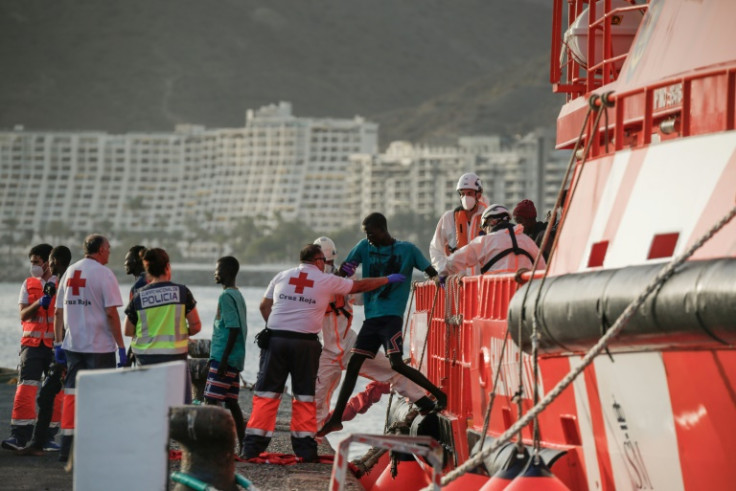Rescuers Continue Search For Migrants Off Canary Isles

Spain's coastguard was on Tuesday looking for three migrant boats reported lost at sea by an NGO a day after rescuing scores of migrants from another vessel near the Canary Islands.
A spokeswoman for Salvamento Maritimo told AFP it would deploy a rescue plane during the morning and had also requested help from other ships navigating in the area.
"For the moment, we've not found anything," she said.
During their searches on Monday, rescuers found a boat carrying 78 sub-Saharan migrants who were taken to shore at Gran Canaria island, she said.
They had initially thought there were 86 on board.
The three missing boats are believed to have left the coast of Senegal in recent weeks, according to Spanish NGO Caminando Fronteras which helps migrant boats in distress.
"One is carrying around 200 people and the other two between 50 and 70 people," a spokesman for the NGO told AFP.
On Monday, Caminando founder Helena Maleno said the biggest boat had left the southern town of Kafountine on June 27 with "many minors on board", quoting family sources who said they had lost contact with the vessel days ago.
Kafountine is a fishing village in southern Senegal which lies at least 1,700 kilometres (more than 1,000 miles) south of the Canary Islands.
The other two boats with around 120 people on board had left the Senegalese coast on June 23.
A Spanish rescue plane had initially thought the boat spotted on Monday was the one carrying some 200 people, but it was only on reaching the vessel that they realised their mistake.
"Every minute counts if we're to find these more than 300 people alive who are in three Senegalese pirogues which have disappeared in the Atlantic," Maleno tweeted on Tuesday, referring to a long wooden canoe-like vessel.
"We need more search means and greater collaboration between Mauritania, Spain and Morocco."
The Atlantic route to the Canaries is particularly dangerous due to the strong currents, with migrants travelling in overloaded boats, which are often unseaworthy, and without enough drinking water.
Many boats leave from the shores of Morocco, Western Sahara or Mauritania but they also come from countries further south such as Senegal.
Atlantic crossings began surging in late 2019 after increased patrols along Europe's southern coast dramatically reduced Mediterranean crossings.
In the first six months of 2023, 7,213 migrants reached the Canary Islands by boat, interior ministry figures show.
© Copyright AFP 2025. All rights reserved.





















